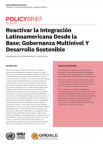Worldwide, feminist politics are increasingly marginalised and face resistance from governments and societies. In post-socialist Eurasia, gender discourses are dominated by international donors promoting a neoliberal approach, as well as states mobilising patriarchal norms for nation-building.
Focusing on grassroots feminist initiatives in Eurasia, this presentation explores alternative gender visions emerging from the ground up, which are oriented towards social justice. Drawing on critical frame analysis, literature on creativity and gender, and intersectionality, we examine the framing strategies deployed by feminist groups in Azerbaijan, Kazakhstan and Tajikistan to advance their agendas and translate feminist thinking into local contexts.
Analysing both discursive and visual forms of expressions, we identify two main framing strategies: depoliticisation (to reach broader audiences and avoid backlash) and repoliticisation (to disrupt dominant discourses). By discussing the dilemmas arising from each strategy, the presentation contributes to ongoing debates on feminist organising in contexts that are hostile to feminism.


